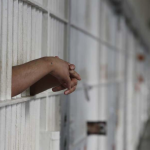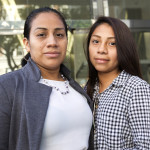UnSettled: Inside the Strange World of Asbestos Lawsuits

Filmmaker Paul Johnson will show a work-in-progress documentary, UnSettled, this week. Photo Credit, Huffington Post 12/12/16 Post
For the past year, the Canadian journalist Paul Johnson has been making a documentary on the asbestos litigation industry. Entitled “UnSettled: Inside the Strange World of Asbestos Lawsuits,” it examines how the “business” of asbestos litigation has evolved over the years and focuses on just how politically aligned lawyers are on reform issues. Courts Monitor publisher, Sara Warner, spoke with Paul about the project and you can read the full interview in the Huffington Post.
Note: UnSettled will be screened for audience feedback at the Edward R. Murrow Room at the National Press Club, Washington D.C. this Wednesday, Dec. 14 at 3:30 p.m. Paul Johnson will hold a Q&A immediately following the screening. You can see the trailer at www.unsettledthemovie.com.




